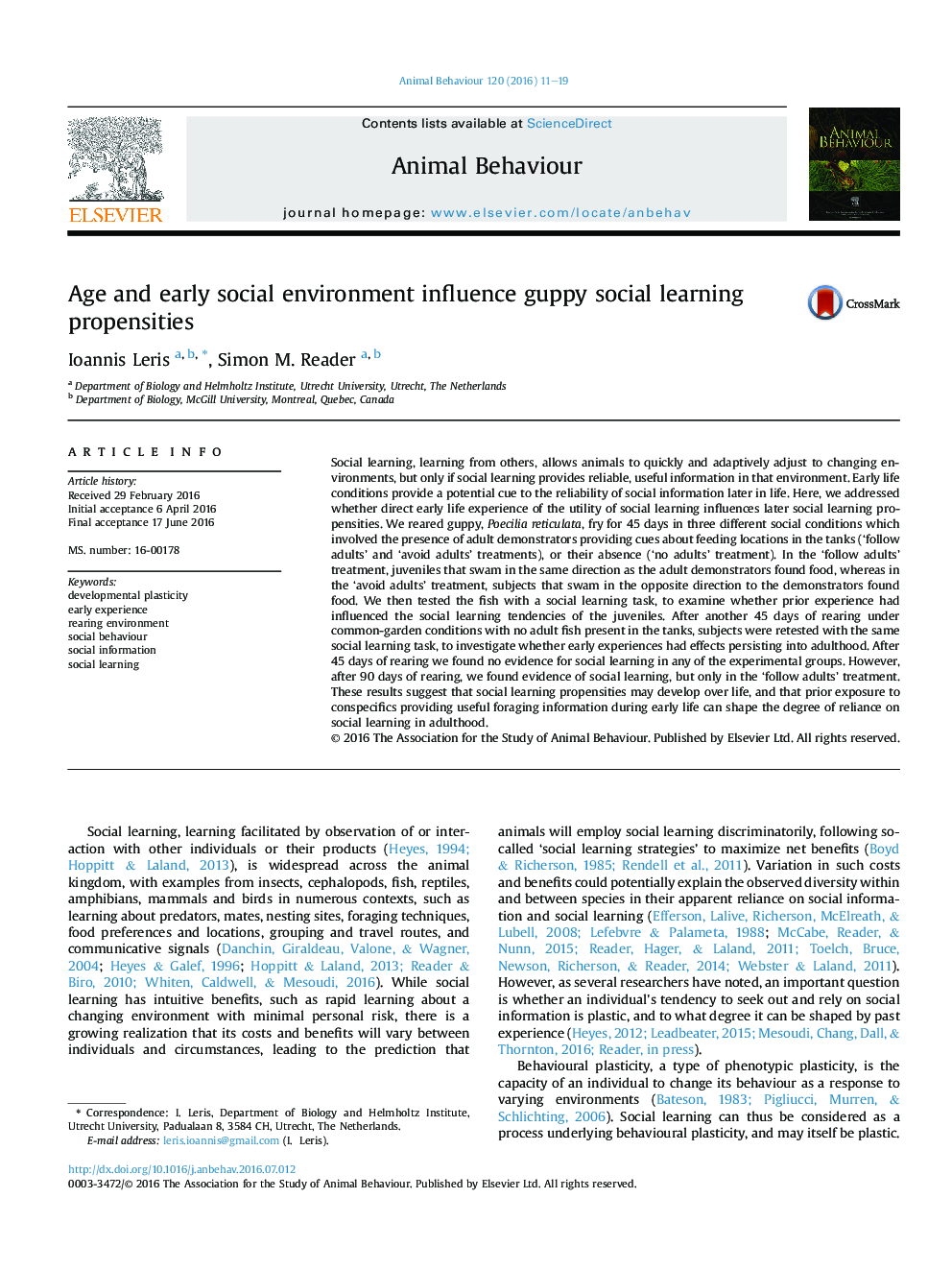| کد مقاله | کد نشریه | سال انتشار | مقاله انگلیسی | نسخه تمام متن |
|---|---|---|---|---|
| 2416208 | 1552208 | 2016 | 9 صفحه PDF | دانلود رایگان |
• In guppies, we manipulated the value of social information during early life.
• We tested the fish for their propensity to learn from others (‘social learning’).
• Social learning occurred only in older fish, suggesting age-dependent development.
• Only fish exposed to reliable social cues early in life socially learned when adult.
Social learning, learning from others, allows animals to quickly and adaptively adjust to changing environments, but only if social learning provides reliable, useful information in that environment. Early life conditions provide a potential cue to the reliability of social information later in life. Here, we addressed whether direct early life experience of the utility of social learning influences later social learning propensities. We reared guppy, Poecilia reticulata, fry for 45 days in three different social conditions which involved the presence of adult demonstrators providing cues about feeding locations in the tanks (‘follow adults’ and ‘avoid adults’ treatments), or their absence (‘no adults’ treatment). In the ‘follow adults’ treatment, juveniles that swam in the same direction as the adult demonstrators found food, whereas in the ‘avoid adults’ treatment, subjects that swam in the opposite direction to the demonstrators found food. We then tested the fish with a social learning task, to examine whether prior experience had influenced the social learning tendencies of the juveniles. After another 45 days of rearing under common-garden conditions with no adult fish present in the tanks, subjects were retested with the same social learning task, to investigate whether early experiences had effects persisting into adulthood. After 45 days of rearing we found no evidence for social learning in any of the experimental groups. However, after 90 days of rearing, we found evidence of social learning, but only in the ‘follow adults’ treatment. These results suggest that social learning propensities may develop over life, and that prior exposure to conspecifics providing useful foraging information during early life can shape the degree of reliance on social learning in adulthood.
Journal: Animal Behaviour - Volume 120, October 2016, Pages 11–19
